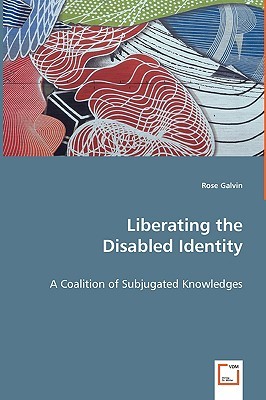
- We will send in 10–14 business days.
- Author: Rose Galvin
- Publisher: VDM Verlag Dr. Mueller E.K.
- Year: 2008
- Pages: 412
- ISBN-10: 3639009053
- ISBN-13: 9783639009057
- Format: 15.2 x 22.9 x 2.1 cm, softcover
- Language: English
- SAVE -10% with code: EXTRA
Liberating the Disabled Identity - A Coalition of Subjugated Knowledges (e-book) (used book) | bookbook.eu
Reviews
Description
Liberating the Disabled Identity combines a qualitative research project, which taps into disabled people's identity narratives, with a critical historical analysis of the creation of the disabled identity in the modern era. The narratives speak with strength, dignity, clarity and imagination about the experience of living in a world which privileges those whose bodies look and perform in certain ways, and they benefit from being embedded in a Foucaultian, genealogical frame-work which historicises and contextualises them. Indeed, it is the insertion of real people's stories into poststructural theory which makes the research and this book unique. The book is geared towards students, teachers, theorists and researchers in the fields of sociology and disability studies. It also provides invaluable insights for professionals who are working or being trained to work with disabled people because it addresses the central issues which affect disabled people's lives and self-perceptions. And, ultimately, it is hoped that this book will be accessible to disabled people who seek to better understand the social processes which underlie their identity losses and how to overcome them.
EXTRA 10 % discount with code: EXTRA
The promotion ends in 20d.02:02:07
The discount code is valid when purchasing from 10 €. Discounts do not stack.
- Author: Rose Galvin
- Publisher: VDM Verlag Dr. Mueller E.K.
- Year: 2008
- Pages: 412
- ISBN-10: 3639009053
- ISBN-13: 9783639009057
- Format: 15.2 x 22.9 x 2.1 cm, softcover
- Language: English English
Liberating the Disabled Identity combines a qualitative research project, which taps into disabled people's identity narratives, with a critical historical analysis of the creation of the disabled identity in the modern era. The narratives speak with strength, dignity, clarity and imagination about the experience of living in a world which privileges those whose bodies look and perform in certain ways, and they benefit from being embedded in a Foucaultian, genealogical frame-work which historicises and contextualises them. Indeed, it is the insertion of real people's stories into poststructural theory which makes the research and this book unique. The book is geared towards students, teachers, theorists and researchers in the fields of sociology and disability studies. It also provides invaluable insights for professionals who are working or being trained to work with disabled people because it addresses the central issues which affect disabled people's lives and self-perceptions. And, ultimately, it is hoped that this book will be accessible to disabled people who seek to better understand the social processes which underlie their identity losses and how to overcome them.


Reviews